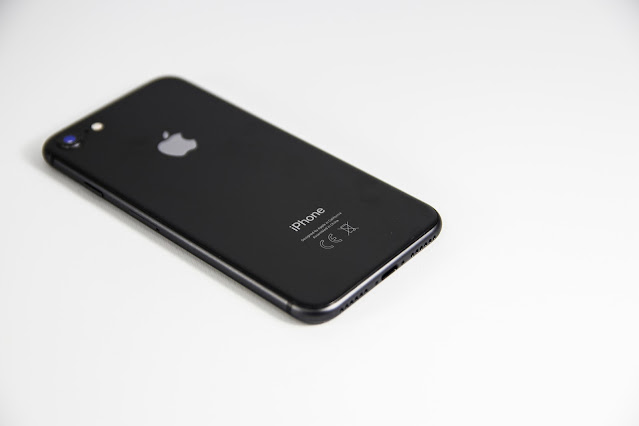The iPhone 8, released in 2017, marked another significant
milestone in Apple's line of iconic smartphones. With its sleek design,
improved performance, and advanced features, the iPhone 8 showcased Apple's
commitment to delivering a premium user experience. In this comprehensive
review, we will explore the various aspects of the iPhone 8, including its
design, performance, camera capabilities, user interface, battery life,
connectivity options, and much more. So, let's dive in and discover what the
iPhone 8 has to offer.
1. Introduction
Exploring the Features and Evolution of the iPhone 8: A Comprehensive Review. The iPhone 8 inherited the classic design language from its
predecessor, the iPhone 7, with a few notable enhancements. It featured a glass
back panel that not only added a touch of elegance but also enabled wireless
charging capabilities. The device retained its slim profile, making it
comfortable to hold and operate with one hand. With a 4.7-inch Retina HD
display, True Tone technology, and wide color gamut, the iPhone 8 offered
stunning visuals and vibrant colors for an immersive viewing experience.
2. Design and Display
The iPhone 8's design was a perfect blend of beauty and
durability. Its aerospace-grade aluminum frame and glass back provided a
premium look and feel while ensuring robustness. The device was available in
three stylish finishes: Space Gray, Silver, and Gold. The Retina HD display
offered excellent brightness, clarity, and color accuracy, making it ideal for
multimedia consumption and gaming.
3. Performance and Processing Power
Equipped with Apple's A11 Bionic chip, the iPhone 8
delivered exceptional performance and processing power. The A11 chip featured a
six-core CPU, including two high-performance cores and four energy-efficient
cores, ensuring optimal efficiency and power management. This powerful chipset,
coupled with the efficient iOS operating system, allowed for smooth
multitasking, lag-free app usage, and seamless gaming experiences.
4. Camera and Photography Features
The iPhone 8 boasted an impressive 12-megapixel rear camera
with a larger and faster sensor than its predecessors. This improvement,
combined with optical image stabilization, allowed for sharper, more detailed
photos, even in low-light conditions. The camera also supported 4K video
recording at 60 frames per second, enabling users to capture stunning moments
in high resolution. Additionally, the device featured a 7-megapixel
front-facing camera, perfect for capturing selfies and engaging in video calls.
5. User Interface and Operating System
The iPhone 8 came preloaded with iOS 11, which introduced
several new features and enhancements. The intuitive user interface made
navigating the device a breeze, and the Control Center provided quick access to
essential settings and functions. iOS 11 also introduced augmented reality
capabilities, allowing users to experience immersive AR apps and games. With
regular software updates from Apple, the iPhone 8 continued to receive new
features and security improvements, ensuring a secure and up-to-date user
experience.
6. Battery Life and Charging Options
The iPhone 8 featured a built-in lithium-ion battery that
provided all-day usage on a single charge. The device also supported wireless
charging, thanks to its glass back design. This meant users could conveniently
charge their iPhone 8 by placing it on a compatible wireless charging pad.
Additionally, fast charging support enabled users to charge their devices up to
50% in just 30 minutes, providing a quick power boost when needed.
7. Connectivity and Networking
The iPhone 8 supported various connectivity options to ensure seamless communication and data transfer. It featured Bluetooth 5.0 for faster and more reliable wireless connections, as well as NFC for convenient contactless payments using Apple Pay. The device also supported high-speed LTE Advanced for fast internet browsing and downloading. With its dual-band Wi-Fi and MIMO technology, users could enjoy faster and more stable Wi-Fi connections, even in crowded areas.
8. Security and Privacy Features
Apple has always prioritized user privacy and security, and
the iPhone 8 was no exception. It incorporated Touch ID, a fingerprint sensor
embedded in the home button, to provide secure and convenient authentication.
Touch ID could be used not only for unlocking the device but also for authorizing
App Store purchases and accessing sensitive data within apps. With end-to-end
encryption and secure hardware, the iPhone 8 ensured that users' personal
information and data remained protected.
9. Storage and Memory Options
The iPhone 8 was available in two storage capacities: 64GB
and 256GB. Users could choose the option that best suited their needs, allowing
ample space for apps, photos, videos, and other content. The device offered
sufficient memory to handle resource-intensive tasks and multitasking without
compromising performance.
10. Additional Features and Accessories
The iPhone 8 introduced various additional features and
accessories to enhance the user experience. It supported Apple's virtual
assistant, Siri, which could perform tasks and answer questions using natural
language commands. The device was also water and dust resistant, providing
added durability and peace of mind. Additionally, users could pair their iPhone
8 with Air Pods or other wireless headphones for a wireless audio experience.
11. Comparison with Previous iPhone Models
Compared to its predecessor, the iPhone 7, the iPhone 8
brought significant improvements in performance, camera capabilities, and
design. The A11 Bionic chip offered faster processing speeds and better energy
efficiency, resulting in smoother performance and longer battery life. The camera
enhancements, such as the larger sensor and optical image stabilization,
allowed for better low-light photography and improved video recording.
Furthermore, the introduction of wireless charging and the glass back design
added a touch of elegance and convenience.
12. Pros and Cons of the iPhone 8
Pros:
1.
Sleek and durable design with a glass back and
aluminum frame
2.
Powerful A11 Bionic chip for excellent
performance
3.
Impressive camera capabilities with enhanced
low-light photography
4.
Intuitive user interface with regular software
updates
5.
Wireless charging support for convenient power
replenishment
Cons:
1.
Smaller display compared to newer iPhone models
2.
No Face ID facial recognition feature
3.
Limited storage options compared to higher-end
models









0 Comments